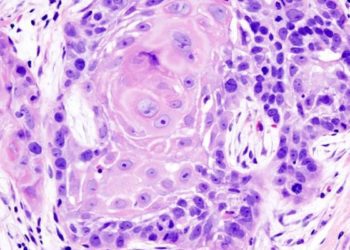Varenicline safe for smoking cessation in patients with stable major depressive disorder
Image: PD
1. In smokers with stable or past major depressive disorder (MDD), varenicline improved rates of smoking abstinence compared to placebo after 12 weeks of treatment and through an additional 40 weeks of follow-up.
2. Despite concerns regarding its neuropsychiatric safety profile, this study suggests that in this patient population varenicline is not associated with increased exacerbations of mood or anxiety symptoms during treatment or follow up periods.
Evidence Rating Level: 1 (Excellent)
Study Rundown: Smoking and depression are among the leading causes of disability and death worldwide; they are also commonly comorbid. Although varenicline has been shown to be effective in improving smoking abstinence rates compared to both placebo and bupropion, studies to date have excluded smokers with preexisting psychiatric disorders due to concerns about its neuropsychiatric safety profile. This study is the first randomized controlled trial to investigate the use of varenicline in patients with stable or past MDD. The results of this study demonstrates a significantly increased rate of smoking abstinence compared to placebo after 12 weeks of treatment and after 40 weeks post-treatment. Furthermore, the study showed no clinical difference in standardized measurements of mood and anxiety between the treatment and placebo group during the study period. These results are largely consistent with prior data suggesting that smokers with comorbid stable MDD would benefit from varenicline without risk of exacerbation of psychiatric symptoms. The major limitation of this study is that they excluded patients with untreated or active depression, as well as patients with other frequently associated psychiatric conditions such as psychosis or mania.
Click to read the study, published today in the Annals of Internal Medicine
Relevant Reading: Nicotine receptor partial agonists for smoking cessation
In-Depth [randomized, double-blinded, placebo controlled study]: This multicenter study randomized 525 patients to receive either varenicline (titrated to 1 mg twice daily over the course of the first week) or placebo. Eligible patients smoked at least 10 cigarettes per day, exhaled carbon monoxide greater than 10 ppm, were motivated to stop smoking, and met DSM criteria for unipolar MDD without psychosis, either successfully treated within two years or currently treated with an antidepressant at a stable dose. Patients were excluded for psychosis, mania, or severe personality disorders, as well as for non-psychiatric disorders such as severe COPD, cardiovascular disease, cancer, or any other severe, acute, or unstable illness. Patients were followed during two weeks of treatment and then followed for another 40 weeks. The primary outcome was continuous abstinence rate (CAR) from weeks 9-12 as measured by exhaled carbon monoxide. CAR from weeks 9-24 and 9-52 were recorded as secondary outcomes. Rates of abstinence were compared with a 2-group, continuity-corrected, chi-square test.
Adverse events, including mood and anxiety disorders as assessed by standardized, validated scales (MADRS for depression and HAM-A for anxiety) were also assessed during treatment and follow-up periods.
Of the 525 patients randomized, 354 completed the study, though all patients were included in final analysis. Baseline characteristics between the treatment and control groups did not differ significantly. At weeks 9-12 of treatment, the varenicline group had significantly greater abstinence (OR 3.35, 95% CI 2.16-5.21). This effect persisted after the treatment period ended, as measured at weeks 9-24 (OR 2.53, 95% CI 1.56-4.10) and weeks 9-52 (OR 2.36, 95% CI 1.40-3.98). The MADRS and HAM-A scales measured no significant differences in mood or anxiety between treatment and placebo groups throughout the treatment period and up to 4 weeks post-treatment. C-SSRS scales showed similar rates of suicidal ideation between groups both during and after treatment. Treatment-emergent adverse events occurred in 72.3% of varenicline subjects and 66.9% of placebo subjects; there were no major differences in rates of adverse events between the treatment and control groups.
By Steven Zhao and Aimee Li MD
© 2013 2minutemedicine.com. All rights reserved. No works may be reproduced without expressed written consent from 2minutemedicine.com. Disclaimer: We present factual information directly from peer reviewed medical journals. No post should be construed as medical advice and is not intended as such by the authors, editors, staff or by 2minutemedicine.com. PLEASE SEE A HEALTHCARE PROVIDER IN YOUR AREA IF YOU SEEK MEDICAL ADVICE OF ANY SORT.





